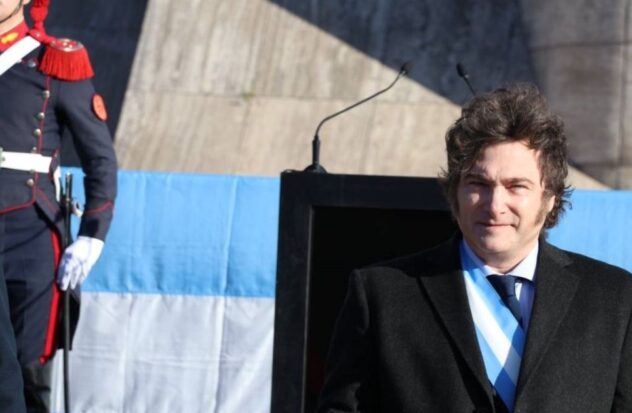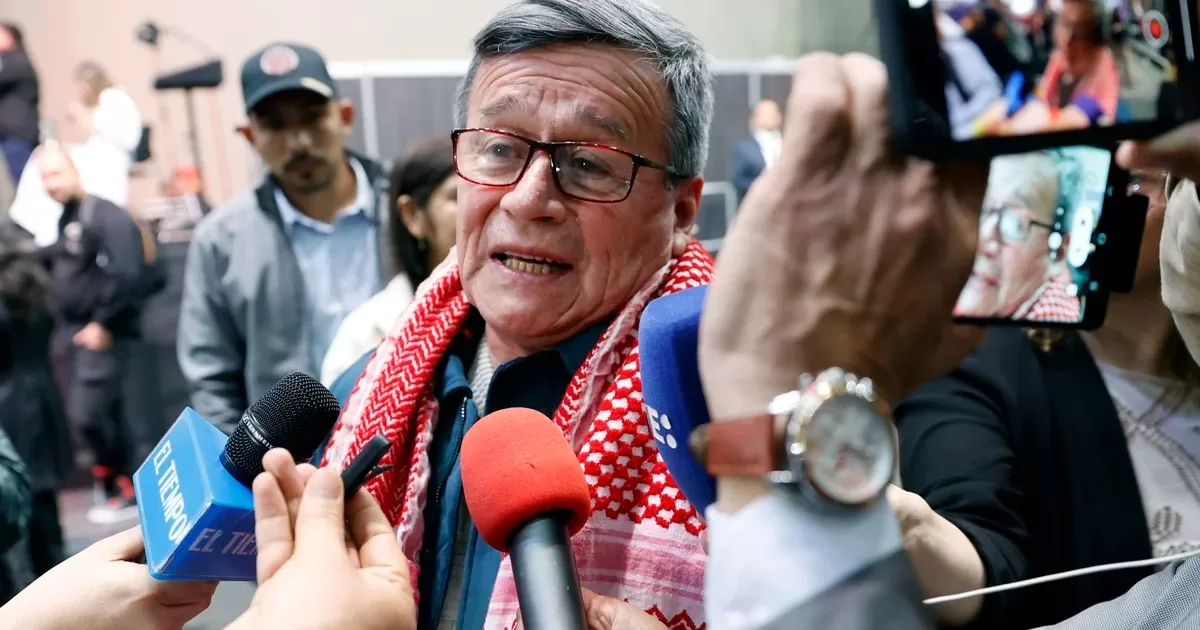BUENOS AIRES. – The Executive Board of the International Monetary Fund (IMF) concluded the eighth review of the Extended Fund Facility agreement for Argentina corresponding to the evaluation it made during the first quarter of 2024. The entity said that the country remains firmly on track, meeting all quantitative performance goals, that is, the objectives negotiated by Javier Milei were executed with all established parameters.
Nevertheless, The multilateral entity added in its statement that “to maintain progress it is necessary to improve the quality of the fiscal adjustmenttaking the first steps towards an improved monetary and exchange rate policy framework by implementing reforms to unlock growth, formal employment and investment,” some “buts” that President Javier Milei described as bad intentions.
The term quality of fiscal adjustment has to do with how the coupling of spending and sources of revenue is being carried out.. For the IMF, this has been complicated in terms of sustainability. The government froze spending or updated it below inflation, cut transfers to the provinces and diluted energy subsidies, so greater sustainability of the adjustment is expected, the journalist explained. Juan Manuel Barcaconsulted by DAILY LAS AMÉRICAS.
The journalist of the Clarion He added that The IMF also questions whether the exchange rate is appreciatedwhich is why a faster pace of devaluation is needed and criticises the existence of multiple exchange rates.
An economist close to President Javier Milei, Juan Carlos de Pablo, said in an interview that he thought it was “brazenness” of the International Monetary Fund to suggest that a new devaluation be implemented.
“The Fund wants to avoid responsibilities, they are a bureaucracy,” added de Pablo, who supports the strategy being carried out by the Minister of Economy, Luis Caputo.
The IMF also wants to know what the exchange rate regime will look like. Milei initially spoke of dollarization, then of a regime of currency competition, and now he is aiming for “endogenous dollarization,” which has yet to be defined, Barca added.
Disbursements
The board of directors of the International Monetary Fund approved the disbursement of $800 millionfrom a line of credit already agreed upon, “to support the efforts of the Argentine authorities to consolidate the process of lowering inflation, rebuild fiscal and external reserves, and support the recovery.”
In this context, President Milei expected an extra disbursement to strengthen the Central Bank’s reserves in order to eliminate the restriction on the purchase of foreign currency.
The Government maintains its position, even ratified by the IMF, that it met all the goals, but the issuing body of all the central banks in the world, did not give clear signals for the completion of a new disbursement of $10 billion as requested by the Milei government.
Hector Torres, Argentina’s former representative to the IMF, told the media that the delay in receiving the funds could be attributed to the fact that the organization “would prefer a long program that serves to financially support structural reforms and not intervention in the local exchange market.”
Rising tensions
The second audit under Javier Milei’s management was completed on June 13 with the approval of those $800 million, a date from which tensions increased, said Argentine journalist José Manuel Barca.
Not everything is done and much support from the IMF is required to undertake the reformsBarca pointed out that “although the Government has had six months of fiscal and financial surpluses and activity in May showed some recovery, Caputo had to intervene in the exchange rate gap a few days ago to contain the dollar and its impact on inflation, which in June stopped falling and had a slight rebound (4.6%), while gross reserves lost $1.7 billion and the country risk jumped to almost 1,600 points, which is why the executive is calling for those funds and to make it feasible to remove the restriction.”
Exchange regime
International reserves in Argentina reach $27.565 billion, $6.223 billion more than in December 2023, but the government considers them insufficient to remove the exchange rate restrictions and hence the need for IMF support.
The multilateral body confirmed in its report that Argentina moves “towards a new monetary regime” involving currency competition,” but without any commitment of fresh money to support that purpose.
We comply
“We comply with everything and they are always putting objections,” said Javier Milei.in an interview, referring to Rodrigo Valdés, director for the Western Hemisphere of the International Monetary Fund, whom he accused of “clear bad intentions.” “He does not want Argentina to do well,” said the disappointed president.
Milei criticized the former official of Michelle Bachelet, supervisor of the Argentine case, whom she blames for the obstacles to a new agreement between the Government and the IMF due to the need for fresh dollars to add reserves. She accused him of operating against the Argentine government.
IMF spokesperson Julie Kozack said the managing director has full confidence in Rodrigo Valdés and his entire senior leadership team and then confirmed that “our engagement with the Argentine authorities remains active and constructive.”
But Milei questions the multilateral organization for keeping an official close to the “Sao Paulo Forum” in officewho was also accused of being “complicit” in the liabilities accumulated by the Central Bank during Sergio Massa’s administration at the head of the Ministry of Economy. “People have to know the truth,” said the Argentine president.
More flexible
Last March, the director for the hemisphere of the International Monetary Fund emphasized the need to implement “sound policies in all areas…”The progress has been impressive,” but “efforts to support the most vulnerable must be sustained, so that the weight of the adjustment does not fall disproportionately on working families.”
This last sentence irritated the Casa Rosada, which, together with the warning to improve the quality of the fiscal adjustment, caused the government to respond that these criteria are “absolutely inaccurate.”
The Government of the South American country is aiming to resume negotiations in person with the International Monetary Fundsaid journalist Juan Manuel Barca, who notes that a “wink” has begun to be sent to the IMF, by relaxing some of the exchange rate references to see if in this way the expected fresh money ends up arriving for Argentina.
(email protected)
Source: IMF / AMBITO / CONSULTATION JOURNALIST JUAN MANUEL BARCA / EDITORIAL


